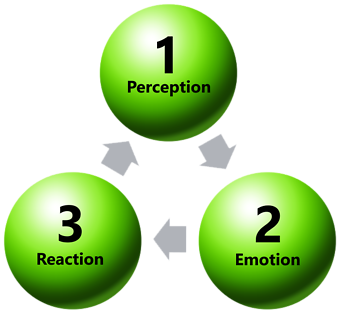
The question is not as crazy as you may think. Most people actually react in the exact same psychological way, when they see a post on Facebook.
Let me tell you how that works:
Imagine this situation: You have just found your seat on the train. You settle in and immediately get out your phone. Aaah – comfort and entertainment. Soon, you are scrolling through your Facebook feed, looking for something that catches your attention. You “like” and comment on several posts and may even share one or two. But you also ignore lots of posts – or scroll away after having glanced at them for less than a second.
But let me ask you a simple question: Why do you read (and like) some posts, while totally ignoring others?
You may say that it’s because those posts are better. Have better content. Concern more interesting topics. And all that may be true. But let’s be honest. You can’t really judge the quality of all the links and posts and videos you skip, in the average 1½ seconds, you look at them, can you?
So, there must be some other explanation for your choices.
And actually, there is. Some posts simply appeal to your brain and emotions, in a more effective way than others. And that doesn’t necessarily have anything to do with the contents of the post.
Your attention, emotions and reactions are strongly influenced simply by the way a Facebook-the post is designed and formatted!
This means that many of your “choices” are rather automatic reactions to text and images, than actual conscious choices.
Do you design your posts for maximum attention?
This is not some cheap trick. I don’t use tricks. It is basic psychology. It actually is possible to create psychologically more effective post, if you know how. Simply because our minds react to inputs in a quite predictable way.







